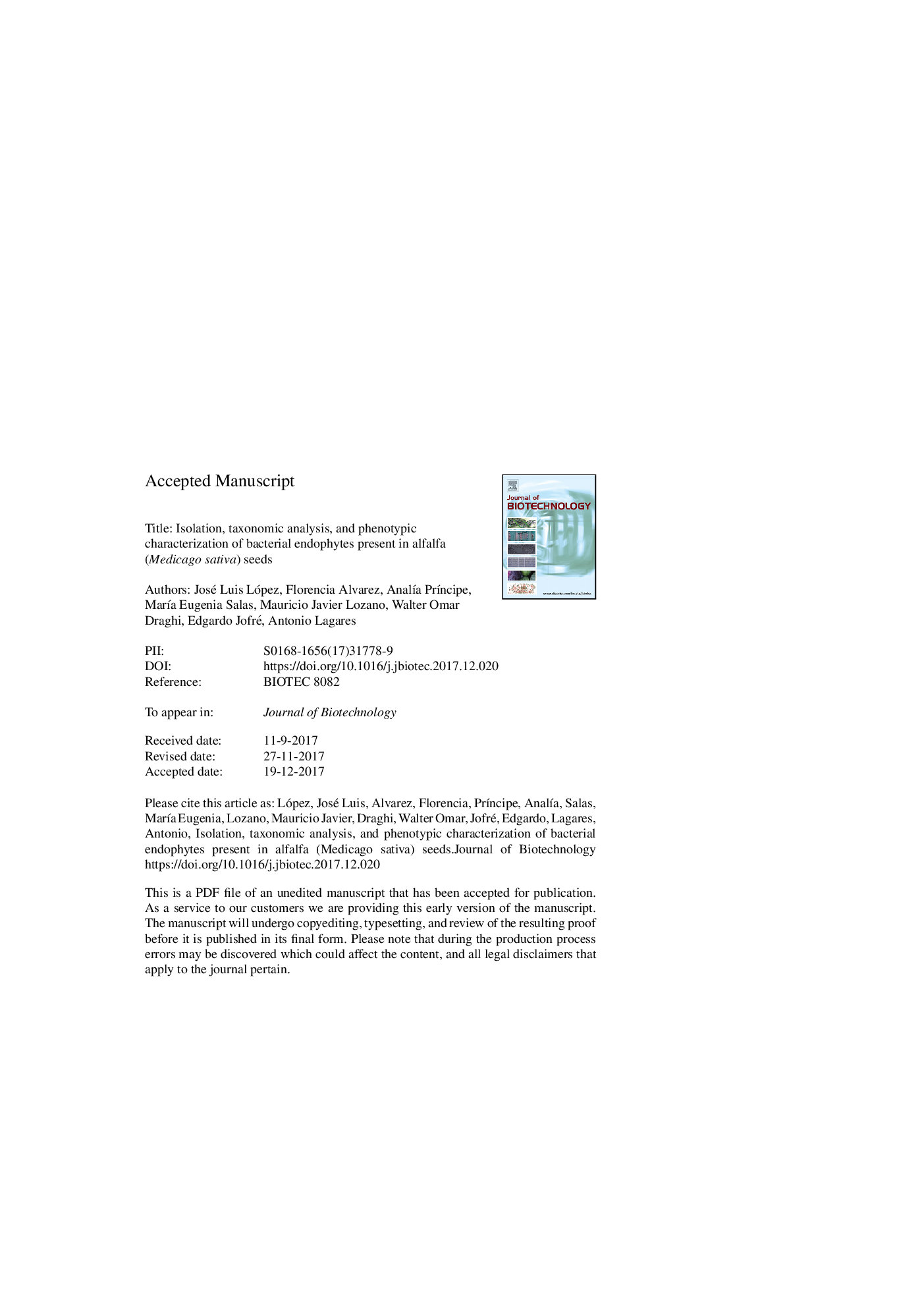| Article ID | Journal | Published Year | Pages | File Type |
|---|---|---|---|---|
| 6490381 | Journal of Biotechnology | 2018 | 33 Pages |
Abstract
A growing body of evidence has reinforced the central role of microbiomes in the life of sound multicellular eukaryotes, thus more properly described as true holobionts. Though soil was considered a main source of plant microbiomes, seeds have been shown to be endophytically colonized by microorganisms thus representing natural carriers of a selected microbial inoculum to the young seedlings. In this work we have investigated the type of culturable endophytic bacteria that are carried within surface-sterilized alfalfa seeds. MALDI-TOF analysis revealed the presence of bacteria that belonged to 40 separate genera, distributed within four taxa (Proteobacteria, Actinobacteria, Firmicutes, and Bacteroidetes). Nonsymbiotic members of the Rhizobiaceae family were also found. The evaluation of nine different in-vitro biochemical activities demonstrated isolates with complex combinations of traits that, upon a Principal-Component-Analysis, could be classified into four phenotypic groups. That isolates from nearly half of the genera identified had been able to colonize alfalfa plants grown under axenic conditions was remarkable. Further analyses should be addressed to investigating the colonization mechanisms of the alfalfa seeds, the evolutionary significance of the alfalfa-seed endophytes, and also how after germination the seed microbiome competes with spermospheric and rhizospheric soil bacteria to colonize newly emerging seedlings.
Keywords
Related Topics
Physical Sciences and Engineering
Chemical Engineering
Bioengineering
Authors
José Luis López, Florencia Alvarez, AnalÃa PrÃncipe, MarÃa Eugenia Salas, Mauricio Javier Lozano, Walter Omar Draghi, Edgardo Jofré, Antonio Lagares,
